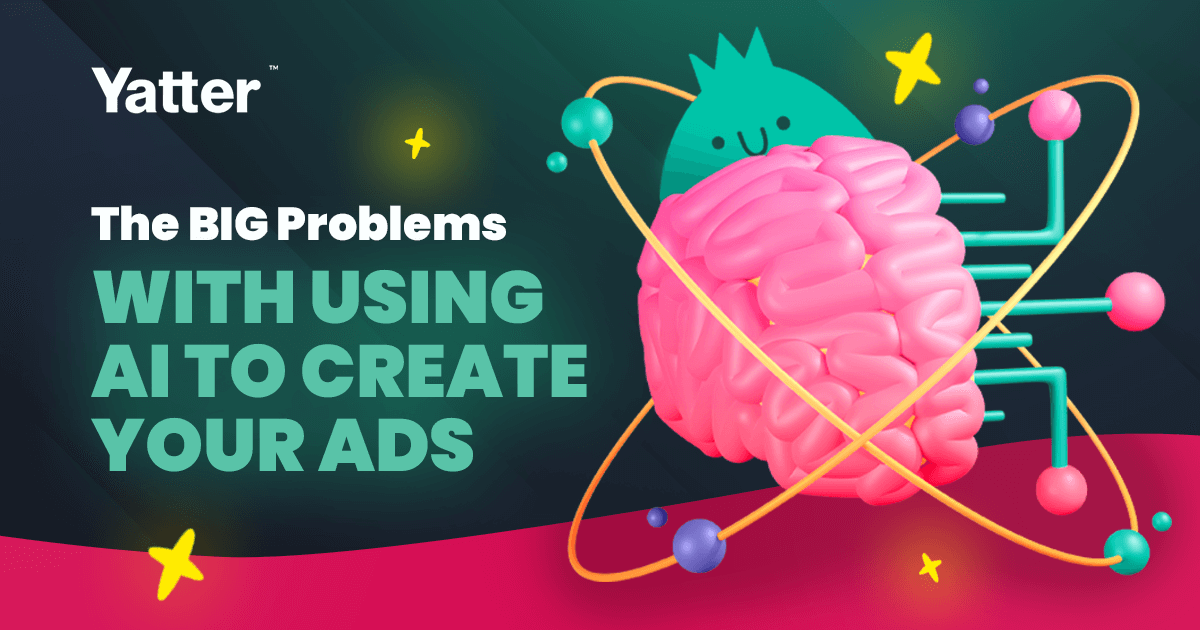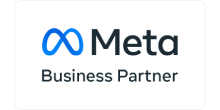Since sophisticated Artificial Intelligence (AI) tools like ChatGPT landed, brands have been looking for all kinds of creative ways to use AI to cut down the time and money they spend on many tasks – including writing ads.
AI’s great for doing the mundane, time-consuming, and routine things that all businesses need. And it’s also pretty handy for generating ideas – getting those creative juices flowing.
But asking it to create entire ads from scratch might not be the best idea. Let’s take a look at the problems you could face if you rely on AI to create your ads.
How could you use AI to help with ads?
Firstly, there are lots of ways AI could help in ad creation.
For example, AI can be used to help with audience targeting. AI algorithms can analyse vast amounts of data to identify patterns and insights about target audiences – far quicker than a human could, and possibly more accurately, too.
AI can also be used in ad monitoring. AI algorithms can continuously monitor and analyse ad campaign performance in real time, so you have the latest data at your fingertips, ready to make tweaks and changes that’ll optimise conversion rates.
You can even use ads for chatbots and conversational advertising… AI-powered chatbots enable interactive and personalised conversations with users 24 hours a day.
That all sounds great, doesn’t it? But should you take it a step further and use AI tools to generate ad content such as visuals, headlines and copy? We’re going to run through the potential problems you might encounter if you do.

What are the problems with using AI to generate ad creative?
1. Lack of human creativity
AI can do many things, but it can’t come up with original ideas. The way AI works is it trawls the internet for past material and uses the results to come up with a reasonable guess about what might be useful to you.
In other words, AI can only rehash ideas that have gone before. It can’t come up with something fresh. This might mean its answers feel outdated or out of touch – not how you want your brand to appear.
Advertising needs to think outside the box. It needs to bring something new, enticing and energising. And that can only come from human creativity…
2. Contextual or cultural understanding
AI lacks an understanding of cultural references, social dynamics and nuanced contexts. This means there are ads out there it just won’t ‘get’, and therefore it could present you with an ad that has no fun, soul or spirit. Or at worst, something utterly nonsensical.
This lack of cultural understanding also means that AI has no real sense of humour. It can learn from previous comedic references, but AI cannot produce new suggestions. Since a joke can be a powerful way for humans to connect with your brand, relying too heavily on AI will mean you miss out on forming a real connection with your target audience.
3. Human empathy
AI doesn’t have emotions, so if you try to rely on it to capture or convey the feelings your target audience has, you’re likely to be disappointed. Although you can ask AI to evaluate emotions and learn behaviour, it will never have true empathy or life experience to draw from… which is often the most powerful inspiration for successful ads.
AI generated ads are unlikely to tug at the heartstrings, embody fears and anxieties, evoke desires, or give your viewers that Friday feeling. And that means your ads are unlikely to convert.
4. Storytelling
AI is not the best at telling stories. It can present facts and arguments (even if it sometimes gets them wrong) but building a compelling, concise story that’ll draw your audience in is not one of AI’s strong points.
Humans have been storytelling for millennia — leave it to the pros.
5. Tone of voice
AI can do the basics, like stringing a grammatical sentence together. But it can end up sounding overly wordy, stuffy or jargon-y. It’s not always easy or compelling to read – bad news for your ads.
If your brand has a strong, distinctive tone of voice to go with your brand personality, you’ll want to maintain it. And although you can attempt to replicate it using AI, it needs a human creative eye to really succeed.
6. Limited data
Another important thing to note is that many AI tools are not accessing new data. ChatGPT, one of the most popular AI tools, only has access to data up until September 2021. Unless you’re a PRO member, you’re accessing old information. Always verify any facts or sources found through AI tools to check it’s up to date.
Are humans really better than AI at writing ads?
As an example, we asked AI to write a Facebook ad for Yatter.
Here’s what it came up with:
“Ignite your brand’s potential with WeAreYatter.com! Elevate your brand, unleash data-driven insights, and let creativity take center stage. Trusted by leading brands. Schedule your free consultation today! Visit WeAreYatter.com and unlock limitless possibilities for your brand. Together, we conquer the advertising world!”
Aside from simple errors like not understanding that Yatter uses UK spellings and overuse of exclamation marks, there’s nothing here that excites a reader. It’s a bland, generic set of words. It’s also repetitive and has no rhythmic interest…
Plus, there’s no reference to the things that make Yatter different from our competitors, like the way we put customer service first, or actually care about the results our clients get. AI can’t tap into the frustrations or aspirations of the people we help – it can’t pique a reader’s interest and encourage them to click. The bottom line is, an ad like this isn’t going to convert.
Now, let’s look at an example ad from Yatter:
“Times are tough for businesses right now.
Budgets are being squeezed.
Expenses scrutinised.
Growth lagging.All reasons you need a scrappy PPC agency that doubles revenue; not outgoings.
Get a free paid advertising plan and see how Yatter could grow your business through expertly managed PPC campaigns.
It only takes 11 seconds to get started 👇”
Much better, right?
Compare AI’s attempt with some of our favourite Facebook ad examples, and you’ll see what we mean. Human creatives can capture a feeling and play on the emotions. They get a message across simply and cleverly, so it’s far more compelling. And that means better conversion rates.
Pros of using AI tools
As you can see, AI does have its uses. AI tools are great to help you to –
- explore ways to reword your ideas
- collect customer data and insights
- generate topic ideas based on search
- produce relevant examples for research
- give you an outline or template to start with
To get the most out of using AI for your ads, you need to spend some time learning how to prompt it properly. The more context you give the tool, and the more specific the request, the better the output is. This can be a time-consuming process – but if you want to go ahead and use AI to write ad copy, it’s worth investing the time.
Since AI can analyse data fast, it can help you with data-driven insights. AI is useful to help generate initial ideas to get you into the flow quicker, as it gets to the most obvious and ordinary answers fast – saving you energy during the creative process.
So, can you use AI to help create your ads?
Of course you can! But don’t expect instant results or creative ideas… if you already have a tried and testedmethod to work on, AI could be useful for your business. But if like most of our clients, you value expert advice and proven results, it’s probably not the route for you.
It’s not all bad news – AI can be helpful as you create ads for your brand, but we think it should be used as a tool alongside your creative mind, not to replace it.
AI’s not yet at the stage where it can come up with your entire creative – for that, you need the power and empathy of a creative pro – like our friendly team at Yatter. Give us a shout to start discussing ads that’ll grab your audience and get them to take action.






